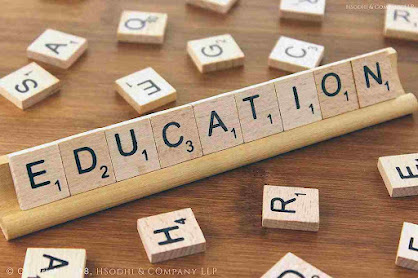Careers in Educational Psychology
Topics in Educational Psychology
From the materials
teachers use to the individual needs of students, an educational psychologist
will delve deep into these issues to more fully understand the learning
process. Some of these topics include:
- Educational technology: Looking at
how different types of technology can help students learn
- Instructional design: Designing
learning materials
- Special education: Helping
students who may need specialized instruction7
- Curriculum development: Creating
coursework that will maximize learning
- Organizational learning: Studying how
people learn in organizational settings
- Gifted learners: Helping students
who are identified as gifted learners8
Careers in Educational
Psychology
Educational psychologists
work with educators, administrators, teachers, and students to learn more about
how to help people learn best. This often involves finding ways to identify
students who may need extra help, developing programs for students who are
struggling, and even creating new learning methods.
Many educational
psychologists work with schools directly. Some are teachers or professors,
while others work with teachers to try out new learning methods for their
students and develop new course curricula. You may even become a counselor,
helping students cope with learning barriers directly.
Other educational
psychologists work in research. For instance, you might work for a government
organization such as the U.S. Department of Education, influencing decisions
about the best ways for kids to learn in schools across the nation.
In addition, you could go
on to work in school or university administration.9 In
all of these roles, you would be able to influence educational methods and help
students learn in a way that best suits them.
A bachelor's degree and
master's degree are usually required for careers in this field; if you want to
work at a university or in school administration, you may need to complete a
doctorate as well.
Recap
Educational psychologists
often work in school to help students and teachers improve the learning
experience. Other professionals in this field work in research to investigate
the learning process and to evaluate programs designed to foster learning.
History of Educational
Psychology
Educational psychology is
a relatively young subfield that has experienced a tremendous amount of growth
in recent years. Psychology did not emerge as a separate science until the late
1800s, so earlier interest in educational psychology was largely fueled by
educational philosophers.10
Many regard philosopher Johann Herbart as the
father of educational psychology.11
Herbart believed that a
student's interest in a topic had a tremendous influence on the learning
outcome. He believed teachers should consider this when deciding which type of
instruction is most appropriate.
Later, psychologist and
philosopher William James made significant
contributions to the field. His seminal 1899 text "Talks to Teachers on
Psychology" is considered the first textbook on educational psychology.12
Around this same period,
French psychologist Alfred Binet was developing his famous IQ tests.13 The
tests were originally designed to help the French government identify children
who had developmental delays and create special education programs.
In the United
States, John Dewey had a significant influence on
education.14 Dewey's ideas were progressive; he believed schools should
focus on students rather than on subjects. He advocated active learning,
arguing that hands-on experience was an important part of the process.
More recently,
educational psychologist Benjamin Bloom developed an important taxonomy
designed to categorize and describe different educational objectives.15 The
three top-level domains he described were cognitive, affective, and psychomotor
learning objectives.
Significant Figures
Throughout history, a number
of additional figures have played an important role in the development of
educational psychology. Some of these well-known individuals include:
- John Locke: Locke is
an English philosopher who suggested the concept of tabula
rasa,
or the idea that the mind is essentially a blank slate at birth.16 This means
that knowledge is developed through experience and learning.
- Jean Piaget: A Swiss
psychologist who is best known for his highly influential theory of
cognitive development, Jean Piaget's influence on educational psychology
is still evident today.
- B.F. Skinner: Skinner
was an American psychologist who introduced the concept of operant
conditioning, which influences behaviorist perspectives.17 His
research on reinforcement and punishment continues to play an important
role in education.
Recap
Educational psychology
has been influenced by a number of philosophers, psychologists, and educators.
Some thinkers who had a significant influence include William James, Alfred
Binet, John Dewey, Jean Piaget, and Benjamin Bloom.
A Word From Verywell
Educational psychology
offers valuable insights into how people learn and plays an important role in
informing educational strategies and teaching methods. In addition to exploring
the learning process itself, different areas of educational psychology explore
the emotional, social, and cognitive factors that can influence how people
learn. If you are interested in topics such as special education, curriculum
design, and educational technology, then you might want to consider pursuing a
career in the field of educational psychology.





Comments
Post a Comment